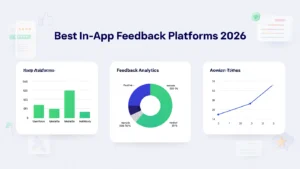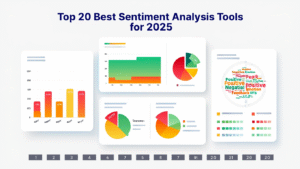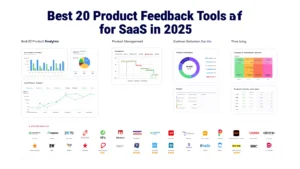Event production plays a crucial role in the success of any event, whether it’s a small corporate meeting or a large-scale festival. Understanding what event production entails can help you appreciate the work that goes into creating seamless and memorable events. At Pearl Lemon Experiences, we excel in event production, ensuring that every detail is meticulously planned and executed.
What is Event Production?
Event production involves the technical and creative elements that bring an event to life. It encompasses everything from lighting and sound to staging and audiovisuals. Unlike event planning and event management, which focus on the logistics and coordination, event production is about creating the atmosphere and experience.
Event Planning vs. Event Management vs. Event Production
Understanding the differences between event planning, event management, and event production is crucial for anyone involved in organizing events. Each plays a distinct role in the overall process, contributing to the seamless execution of a successful event.
Event Planning
Event planning is the initial stage of organizing an event. It involves the conceptualization and coordination of all the preliminary details. Key aspects of event planning include:
- Budgeting: Determining the financial resources available and allocating funds to various aspects of the event.
- Scheduling: Setting the date and time for the event, and creating a timeline for all planning activities.
- Venue Selection: Choosing an appropriate location that meets the event’s requirements.
- Theme and Design: Deciding on the event’s theme, décor, and overall aesthetic.
- Vendor Coordination: Sourcing and contracting vendors for services such as catering, entertainment, and transportation.
- Guest List Management: Identifying and inviting guests, managing RSVPs, and ensuring the right mix of attendees.
In summary, event planning is about laying the groundwork and setting the stage for the event.
Event Management
Event management focuses on the operational side of the event, ensuring that the plans made during the event planning stage are executed smoothly. This involves:
- Logistics: Coordinating the delivery and setup of equipment, materials, and supplies.
- On-site Coordination: Managing the event on the day, including overseeing staff, vendors, and logistics.
- Problem-solving: Addressing any issues or emergencies that arise during the event.
- Guest Services: Ensuring attendees have a positive experience, from registration to departure.
- Compliance: Ensuring the event adheres to regulations, safety standards, and permits.
Event management is essentially the hands-on execution and real-time coordination that brings the event plan to life.
Event Production
Event production is the creative and technical execution of an event. It involves creating the atmosphere and experience that attendees will remember. Key components of event production include:
- Design: Developing the visual and thematic elements of the event, such as stage design, lighting, and décor.
- Technical Setup: Installing and managing sound systems, lighting rigs, video screens, and other technical equipment.
- Audiovisuals: Coordinating multimedia presentations, live streaming, and video production.
- Staging: Setting up stages, seating, and other physical structures required for the event.
- Special Effects: Implementing special effects like pyrotechnics, laser shows, or holograms.
Event production is about transforming a space and creating an immersive experience for attendees. It’s the blend of art and technology that makes an event unforgettable.
Each of these elements is essential for a successful event. Together, they ensure that every aspect of the event is meticulously planned, managed, and executed, resulting in a memorable and impactful experience.
The Basics of Event Production
Event production is a multifaceted process that combines creativity, technical expertise, and meticulous planning to create engaging and memorable experiences. Here are the fundamental components of event production:
Design
Design is the foundation of event production. It involves conceptualizing the visual and thematic elements that will define the event’s atmosphere. Key aspects include:
- Theme Development: Creating a cohesive theme that aligns with the event’s purpose and audience.
- Visual Elements: Designing the stage, backdrop, lighting, and décor to match the theme.
- Graphic Design: Creating promotional materials, signage, and digital content that reflect the event’s branding.
Technical Setup
Technical setup is crucial for the smooth execution of an event. It involves installing and configuring the necessary equipment to support the event’s activities. Important components include:
- Sound Systems: Setting up microphones, speakers, and audio mixers to ensure clear and high-quality sound.
- Lighting: Installing lighting rigs, spotlights, and special effects lighting to enhance the visual appeal and atmosphere.
- Video Equipment: Setting up projectors, screens, and cameras for presentations, live streaming, and recordings.
- Staging: Assembling stages, platforms, and seating arrangements to facilitate performances and presentations.
Logistics
Logistics involves coordinating the movement and placement of equipment, materials, and personnel to ensure everything is in the right place at the right time. Key logistics tasks include:
- Transport: Arranging the transportation of equipment and materials to and from the venue.
- Setup and Breakdown: Coordinating the installation and dismantling of equipment and structures.
- Scheduling: Creating a detailed timeline for setup, rehearsal, and event execution to ensure everything runs on schedule.
Execution
Execution is the real-time management of the event, ensuring that all technical and creative elements work together seamlessly. Key responsibilities include:
- On-site Coordination: Overseeing the event’s operations, including managing staff, vendors, and performers.
- Technical Support: Providing technical assistance and troubleshooting to ensure equipment functions properly.
- Live Management: Monitoring the event in real-time, making adjustments as needed to maintain a smooth flow.
Audiovisuals
Audiovisual elements are central to engaging and entertaining the audience. This involves:
- Presentations: Coordinating multimedia presentations, slideshows, and videos.
- Live Streaming: Setting up and managing live streaming services for remote attendees.
- Recording: Capturing the event on video for future use or distribution.
Special Effects
Special effects add an extra layer of excitement and can make an event truly memorable. This can include:
- Pyrotechnics: Coordinating fireworks or indoor pyrotechnics displays.
- Laser Shows: Creating dynamic laser light shows that captivate the audience.
- Holograms: Using holographic technology to project images or effects that enhance the event’s theme.
Types of Events That Event Companies Produce
Event production companies like Pearl Lemon Experiences specialize in creating a wide range of events, each with its unique requirements and challenges. Here’s an overview of the various types of events that these companies typically produce:
Corporate Events
Corporate events are professional gatherings organized by businesses or organizations. They include:
- Conferences: Large meetings focused on specific industries or topics, often featuring keynote speakers, panel discussions, and breakout sessions.
- Seminars: Educational sessions that provide training or information on particular subjects.
- Product Launches: Events designed to introduce new products or services to the market, often involving presentations, demonstrations, and media coverage.
- Workshops: Interactive sessions aimed at skill-building or knowledge-sharing among participants.
- Trade Shows: Exhibitions where companies display and promote their products or services to potential customers and partners.
Social Events
Social events are personal or community gatherings designed for celebration and enjoyment. These include:
- Weddings: Ceremonies and receptions that celebrate the union of a couple, often involving elaborate decorations, entertainment, and catering.
- Parties: Celebrations for various occasions, such as birthdays, anniversaries, or holidays, which may feature themes, entertainment, and activities.
- Reunions: Gatherings of family, friends, or alumni to reconnect and celebrate shared history and relationships.
Cultural Events
Cultural events showcase artistic, musical, or theatrical performances and often celebrate cultural heritage. These include:
- Festivals: Large-scale events that feature music, food, arts, and crafts, often spanning several days.
- Concerts: Live music performances by bands, solo artists, or orchestras.
- Theater Productions: Performances of plays, musicals, or other theatrical works, requiring intricate staging, lighting, and sound design.
- Art Exhibitions: Showcases of visual art, including paintings, sculptures, and multimedia installations.
Sports Events
Sports events focus on athletic competitions and activities, often requiring specialized production elements. These include:
- Tournaments: Competitions featuring multiple teams or individuals, such as football, basketball, or esports tournaments.
- Matches: Single sporting events, such as soccer games, boxing matches, or tennis matches.
- Athletic Competitions: Events like marathons, triathlons, or gymnastics meets that involve multiple participants and require precise coordination and timing.
Educational Events
Educational events are designed to provide learning opportunities and knowledge sharing. These include:
- Lectures: Presentations by experts on specific topics, often followed by Q&A sessions.
- Symposiums: Gatherings of scholars and experts to discuss and present research on particular subjects.
- Career Fairs: Events where employers and educational institutions provide information and opportunities to job seekers and students.
Non-Profit Events
Non-profit events aim to raise awareness, funds, or support for charitable causes. These include:
- Fundraisers: Events designed to raise money for specific causes, often featuring auctions, raffles, and entertainment.
- Awareness Campaigns: Events focused on spreading awareness about social, environmental, or health issues.
- Volunteer Activities: Organized activities that bring volunteers together to support community projects or initiatives.
How the Event Production Process Works?
The event production process is a comprehensive sequence of steps that transform an initial concept into a fully realized event. Here’s a detailed look at each stage of the process:
Consultation
The first step in the event production process is the consultation phase. During this stage, the event production team meets with the client to understand their vision, goals, and requirements. Key activities include:
- Needs Assessment: Discussing the purpose of the event, target audience, and desired outcomes.
- Budgeting: Establishing a budget to guide the scope and scale of the event.
- Concept Development: Brainstorming ideas and themes that align with the client’s vision and goals.
Planning
Once the consultation is complete, the planning phase begins. This involves creating a detailed plan that outlines every aspect of the event. Key components include:
- Design Planning: Developing the event’s visual and thematic elements, including décor, lighting, and staging.
- Technical Planning: Identifying the technical requirements, such as sound systems, audiovisuals, and special effects.
- Logistics Planning: Coordinating the transportation, setup, and breakdown of equipment and materials.
- Timeline Creation: Establishing a detailed schedule for all planning activities, rehearsals, and the event day.
Setup
The setup phase involves preparing the venue and installing all necessary equipment. This stage is critical for ensuring that everything is ready for the event. Key tasks include:
- Venue Preparation: Arranging the layout and setting up stages, seating, and other structures.
- Technical Installation: Installing and configuring sound systems, lighting, video equipment, and special effects.
- Decor and Design Setup: Placing decorations, signage, and other design elements to create the desired atmosphere.
Execution
Execution is the real-time management of the event. During this phase, the production team ensures that all elements work seamlessly together. Key activities include:
- On-site Coordination: Managing staff, vendors, and performers to ensure everything runs smoothly.
- Technical Support: Monitoring and troubleshooting technical equipment to prevent or resolve any issues.
- Live Management: Overseeing the flow of the event, including timing, transitions, and audience engagement.
Breakdown
After the event concludes, the breakdown phase begins. This involves dismantling and removing all equipment and materials from the venue. Key tasks include:
- Equipment Removal: Carefully disassembling and packing technical equipment, staging, and décor.
- Venue Cleanup: Ensuring the venue is left in its original condition or as required by the venue agreement.
- Post-Event Review: Conducting a debrief with the client to discuss the event’s success and gather feedback for future improvements.
The event production process is a structured series of stages that ensure a seamless and successful event. From the initial consultation to the final breakdown, each step is carefully planned and executed to bring the client’s vision to life. At Pearl Lemon Experiences, our team excels in managing every aspect of this process, delivering exceptional events that meet and exceed our clients’ expectations.
Cost of Event Production Services
The cost of event production services can vary widely, influenced by several key factors such as the size and complexity of the event. Larger events generally demand more resources, including staff, equipment, and materials. Extensive setups for large audiences, such as additional seating and sophisticated sound and lighting systems, significantly increase the budget. Moreover, high-quality audiovisual setups, like projectors, LED screens, and live streaming equipment, further drive up costs, especially when advanced technical specifications are required.
Design and decor also play a crucial role in determining the overall cost. Custom themes, intricate decorations, and branded materials add to the budget, as they require more detailed planning and execution. Additionally, the location of the event can impact expenses, with prestigious or remote venues often incurring higher costs due to logistical challenges. Transportation of equipment and materials to these venues can be both time-consuming and costly, contributing to the overall expenditure.
The duration of the event and the expertise of the staff involved are other significant factors influencing costs. Longer events necessitate more extended setup and breakdown periods, which in turn require additional labor and equipment rental. Skilled professionals, such as sound engineers, lighting technicians, and event managers, are essential for a successful event but come at a premium. Additional services, including entertainment, special effects, and catering, also enhance the event experience but add to the overall budget. At Pearl Lemon Experiences, we ensure transparent pricing and tailored solutions to meet our clients’ unique needs and budget constraints.
How to Choose an Event Production Company?
Choosing the right event production company is crucial for ensuring the success of your event. Start by looking at the company’s experience and track record. A company with a proven history of successfully producing events similar to yours can provide valuable insights and expertise. Review their portfolio to see examples of their previous work, which will give you a sense of their capabilities and the quality of their productions. Additionally, consider the range of services they offer and whether they can meet all your event needs, from technical setup to creative design.
Next, evaluate the professionalism and skills of their team. An event production company should have a well-coordinated and experienced team, including sound engineers, lighting technicians, designers, and event managers. Meet with key team members to discuss your event and assess their understanding of your vision and requirements. A dedicated and knowledgeable team can make a significant difference in the execution and overall success of your event. Look for a company that emphasizes clear communication and demonstrates a commitment to understanding and fulfilling your specific needs.
Lastly, consider client reviews and testimonials to gauge the company’s reputation. Feedback from past clients can provide valuable insights into the company’s reliability, work ethic, and ability to deliver on promises. Check online reviews, ask for references, and take the time to speak with previous clients if possible. Positive reviews and strong recommendations are indicators of a trustworthy and competent event production company. At Pearl Lemon Experiences, our reputation for excellence and our comprehensive, client-focused approach ensure that we consistently deliver exceptional event production services.
Conclusion
Event production is an essential aspect of creating memorable events. From the initial design to the final execution, every detail matters. By understanding what event production involves and the challenges it presents, you can better appreciate the work that goes into making an event successful. If you’re planning an event, consider Pearl Lemon Experiences for top-notch event production services.
FAQs
Experience is crucial because it indicates that the company has successfully handled similar events in the past, which means they are likely to understand the challenges and nuances of your event. An experienced company brings expertise, a network of reliable vendors, and proven strategies to ensure your event runs smoothly.
Look for diversity and quality in their past events. Check if they have experience with events similar in size and type to yours. High-quality visuals, creative designs, and technical proficiency in their portfolio can give you confidence in their ability to produce your event.
The team’s expertise is critical as it directly impacts the execution of your event. Skilled professionals, such as sound engineers, lighting technicians, and designers, ensure that all technical and creative aspects are handled efficiently. A knowledgeable team can troubleshoot issues quickly and enhance the overall event experience.
Client feedback provides insights into the company’s reliability, professionalism, and quality of service. Positive reviews and testimonials indicate a track record of satisfied clients. Speaking with past clients can also give you a clearer picture of what to expect from the company.
Pearl Lemon Experiences stands out due to our extensive experience, comprehensive service offerings, and a dedicated team of professionals. We prioritize clear communication, client satisfaction, and delivering high-quality, memorable events tailored to meet our clients’ unique needs and visions.





